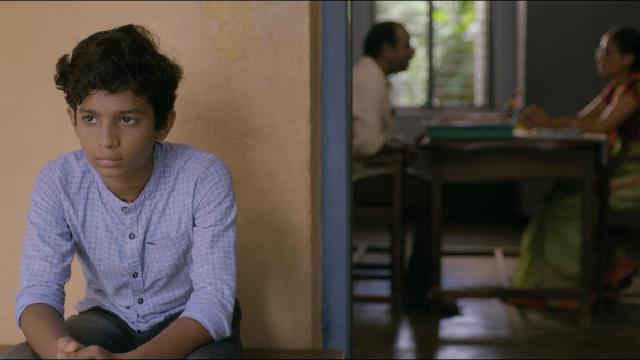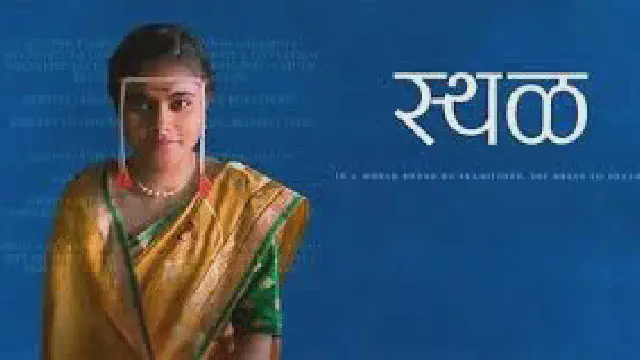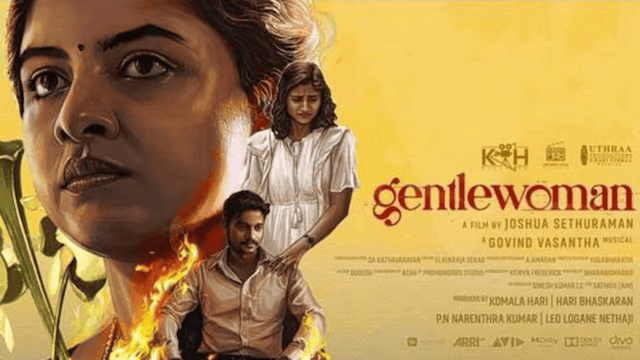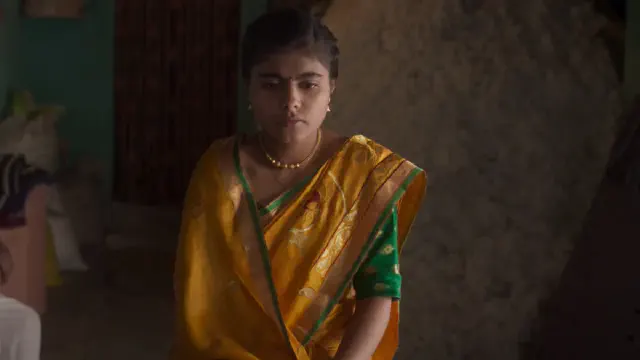
Member Reviews
No good movie is too long and no bad movie is short enough. Your intellect may be confused, but your emotions will never lie to you.
You can also browse reviews using our alphabetical index of films reviewed
Films reviewed on this Page
Nadaaniyan (6)
Mithya (1)
Sthal (2)
Gentlewoman (1)
Page 11 of 97
Nadaaniyan
Bharathi Pradhan
Lehren.com

Juvenile, Actually
This Love-Tale is full of Nadaaniyan as Ibrahim & Khushi are Ishq Mein together! But is all the young romance worth a watch?
The Principal’s dying to be cool. The acronym-loving kind of cool that says YOLO, You Only Live Once. That’s a hat tip from debut-making director Shauna Gautam to mentor Karan Johar in whose debut film Kuch Kuch Hota Hai, Archana Puran Singh had played the same ditzy role. The rest of the film too, continues to be Johar territory, revisited, recycled. I’m going to cut some slack for the freshers behind and on screen. This is a new start for the director and for new hero Ibrahim Ali Khan (playing ‘Noyyda’ boy Arjun) while it’s a third attempt for Khushi Kapoor (Pia Jaisingh).
All 19 reviews of Nadaaniyan here
Nadaaniyan
Bhawana Somaaya
92.7 Big FM
Nadaniyan reflects our urban youth who are confused but eventually accountable for their actions
All 19 reviews of Nadaaniyan here
Nadaaniyan
Uday Bhatia
Mint Lounge

The kids never stood a chance
This uninspired, unsure film hangs Khushi Kapoor and Ibrahim Ali Khan out to dry
Star kid releases have become a toxic cycle in Hindi film. No one seems to derive any pleasure from them, yet there’s one every month. As soon as a trailer drops, thousands of angry posts appear, with nothing to go on but two minutes of promotion and a vague idea that sons and daughters of famous actors are the enemy. Even established stars who came through film families can’t catch a break; last year, the release of Jigra, starring Alia Bhatt, was marked by unprecedented negativity. But with the younger crop, there are problems beyond an apathetic and frustrated Hindi viewing public.
All 19 reviews of Nadaaniyan here
Mithya
Manoj Kumar
Independent Film Critic

A poignant drama that closes with a nail-biting finish
Mithya explores layers of grief in a young boy’s life, but it also reflects a growing desire within the Kannada film industry to tell stories that offer real value to audiences.
Mithya is an intimate story of a young boy struggling to make sense of his life, which has been shattered into countless pieces after his parents pass away. It marks director Sumanth Bhat’s feature film debut. Previously, he helmed the Kannada web series Ekam, also co-produced by Rakshit Shetty. Mithya sheds light on the internal turmoil of an 11-year-old boy, Mithun. Taken in by his aunt’s family after his mother dies by suicide — leaving him and his younger sister orphaned — he is uprooted from Mumbai, where he was born and raised, and placed in the slow, quiet countryside of Udupi. He prefers to be called Mithya, but adjusting to his new reality is far from easy.
All 3 reviews of Mithya here
Sthal
(A Match)
Keyur Seta
(for The Common Man Speaks)
Bollywood Hungama

Subtle yet powerful critique of forced arranged marriages of girls
India is obsessed with marriages. Weddings take place all over the country in different regions and among different communities and they are celebrated like anything. However, even in today’s times in rural India, the idea of a girl’s forced arranged marriage still exists. Filmmaker Jayant Digambar Somalkar’s Sthal (A Match) boldly highlights this social evil. The movie takes place in a village in Maharashtra named Dongargaon and it revolves around Savita Daulatrao Wandhare (Nandini Chikte). She is in her Final year of Bachelor of Arts course and her specialization subject is Sociology. Her father (Taranath Khiratkar) and mother (Sangita Sonekar) wish to get her married off soon but she wants to study further.
All 5 reviews of Sthal here
Nadaaniyan
Nonika Singh
The Tribune, Hollywood Reporter India

Love me not, the film cries out
For the longest time, Dharma Productions has been known for reminding us how rich lives matter. Time and again, it has taken viewers not only on a voyeuristic ride into the extravagant lifestyles of the uber rich, but also offered a deep dive into their ‘struggles’, often evoking a fair degree of empathy, even relatability. ‘Nadaaniyan’ is one more such film where the poor rich girl syndrome manifests itself. Pia (Khushi Kapoor) is the daughter of ultra-rich parents (Suniel Shetty and Mahima Chaudhry), studying in an ‘ultra-elite school’ where students seem to be doing anything but study. She, ‘the poster princess of privilege and entitlement’, has her fair share of dilemmas, including her parents’ failing marriage.
All 19 reviews of Nadaaniyan here
Nadaaniyan
Renuka Vyavahare
The Times of India

A rambling love story that’s too filtered to be true
Despite the potential, the storytelling and emotions in Nadaaniyan are as shallow and filtered as beautified Instagram posts.
To win over her best friends and wriggle out of a sticky situation, poor little rich girl Pia Jaisingh (Khushi Kapoor) convinces her new classmate, a career-driven Arjun Mehta (Ibrahim Ali Khan) to be her rental boyfriend. The Instagram love story looks perfect on reels until things get real between the two. You can predict this story as soon as it begins. It follows the tropes of any teen romance. Pia offers Rs 25K a week to Arjun, an aspiring lawyer to get him to pretend as her boyfriend. She’s a wealthy Delhi girl; he’s from Greater Noida. He thinks love is a distraction, she thinks her world revolves around love. Her family’s patriarchal, his parents are liberal. Despite the differences, the two make a deal. She soft launches him on her socials before the big reveal. What happens when the two catch feelings?
All 19 reviews of Nadaaniyan here
Nadaaniyan
Ishita Sengupta
Independent Film Critic

Where Are We Headed?
Shauna Gautam’s debut feature Nadaaniyan's leads are so dull that even in a ranking of Hindi cinema’s most forgettable protagonists, Pia (Khushi Kapoor) and Arjun (Ibrahim Ali Khan) wouldn’t qualify.
History is proof that the most memorable Hindi films have centred on impossible deals. I will offer some examples. In Raj Kanwar’s Judaai (1997), a wife sold her husband to another woman for a briefcase of cash. In Satish Kaushik’s Hum Aapke Dil Mein Rehte Hain (1999), the two principal characters enter into a one-year marriage contract; in S. Shankar’s Nayak: The Real Hero (2001), a journalist makes a deal with a chief minister to fill in his shoes for a day. Apart from finding Anil Kapoor, the actor present in all three films, either brokering deals or being brokered in such agreements, the instances highlight the commonality of these segues.
All 19 reviews of Nadaaniyan here
Gentlewoman
Kirubhakar Purushothaman
News 18

Lijomol Jose’s Crime Thriller Is Nearly Brilliant
Gentlewoman could have been an ode to Sriram Raghvan’s crime thrillers, but it is a bit didactic and unrefined to be linked to such excellence.
Gentlewoman is one of those films that leaves you with the frustration that rises out of lost potential. It could have been the perfect free-hand circle, if not for the last wayward bit. The circle is not all that misshapen, but you can’t look past the botch made either because when things are going well, it is seamless, until it is not. The mistakes, even though just a few, become conspicuous when everything else is perfect. Now, the film, directed by debutant Joshua Sethuraman, is good. The lamentation is about how it could have been great as it kicks off with a brilliant premise and subtlety that is rare in crime thrillers of Tamil cinema.
All 2 reviews of Gentlewoman here
Sthal
(A Match)
Anuj Kumar
The Hindu

A sharp critique of traditional matchmaking practice
Marked by the natural flair of non-actors, Jayant Digambar Somalkar’s debut Marathi film is a sensitive exploration of organised social hypocrisy
As the world customarily deliberates on a woman’s place in society this week, writer-director Jayant Somalkar shows us the mirror through a deceptively simple take on the patriarchal roots of the traditional matchmaking process and the attendant social churn in our villages. Structured like a coming-of-age story of a village girl struggling to find her way out of the dragnet of gender roles and societal expectations, protagonist Savita’s tenacity and quiet rebellion pierce our consciousness. Seen from a girl’s point of view, Sthal’s scope is not limited to the humiliation a girl and her family endure in finding a suitable match through an arranged marriage. It deconstructs its cultural context, its normalisation, and its consequences. When news pages bring the rise in the number of farmer suicides and the sale of mobile phones in rural Maharashtra into our living rooms, one misses the social pressures and moral conditioning that pushes a peasant to the brink and reduce jobless youth to data.